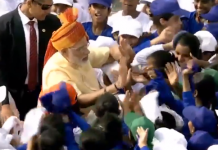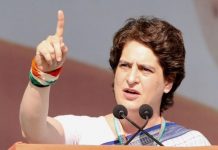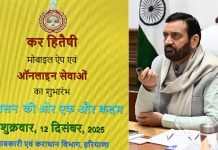The imposition of the property tax by the administration has invited criticism from the people and political parties in Jammu and Kashmir. PDP president Mehbooba Mufti has even urged people of J-K to peacefully refuse to pay property tax, writes Riyaz Wani
Close on the heels of an all-out drive to retrieve government land, a move that involved the bulldozing of the houses and commercial establishments, the imposition of the property tax by the administration has run up against widespread criticism from the people and political parties in Jammu and Kashmir. More so in the Jammu division where the move has also triggered sporadic public protests and severe opposition from civil society groups.
National Conference leader Omer Abdullah has asked the administration to leave this important decision for an elected government to decide, saying there should be “no taxation without representation.”
Peoples Democratic Party (PDP) president Mehbooba Mufti urged people of Jammu and Kashmir to peacefully refuse to pay property tax. She said that the levying of the tax was part of the BJP’s agenda of impoverishing the people of the Union Territory.
“The real aim is to make people of Jammu and Kashmir so poor that they don’t demand anything. Look at the rest of the country, 80 crore people are getting free ration. They don’t ask for jobs or cheaper fuel,” Mehbooba said at a recent press conference in Srinagar. “They just wait for the 5 kg grain so that they can feed their children. They want to bring Jammu and Kashmir also to the same level.”
Similarly, in the Jammu division, the tax has been opposed by parties other than the BJP. Democratic Azad Party leader Ghulam Nazi Azad has urged the administration to postpone it for a few years until the economic situation in the union territory improves. Congress has also opposed the measure.
In a related development, the mayors of the twin capitals of the Union Territory have also spoken out against the tax. Srinagar City Mayor, Junaid Azim Mattu, termed the step “arbitrary” saying that it was not approved by the elected urban local body. Jammu Mayor, Rajinder Sharma, said that the property tax was imposed by the administration and not by the Jammu Municipal Committee.
Though the BJP in the UT hasn’t publicly opposed the move, it hasn’t also supported it. The party’s J&K president Ravinder Raina was seen maintaining silence in response to a question by a reporter, the video clip of which has since gone viral.
However, Lieutenant General Manoj Sinha has defended the move, saying the uproar over the minimal property tax was unjustified.
“In J&K, people pay to use internet data, buy I-phones and play videos, I wonder why there is a hue and cry over the imposition of property tax,” Sinha said while addressing a function in Jammu. “It is the responsibility of the government to serve the interests of the citizens in the best manner possible. But if the affluent sections won’t pay taxes for services availed, this is a matter which needs a loud thinking.”
The property tax rates will be 5 percent of taxable annual value (TAV) for residential properties and 6 percent for commercial properties. The tax follows the still ongoing campaign to retrieve the government land occupied by people which too has generated a deep public unease. The land being retrieved includes the Roshni land, which was earlier handed over by the previous governments to its occupiers under a scheme. The scheme, which was meant to raise Rs 25,000 crore to finance the purchase of hydropower projects from the centre by selling state land under unauthorized occupation turned out to be a damp squib. It has fetched only a few hundred crores since it was enacted in 2002 which makes the revenue earned from the land disproportionately less than the target. The administration is now citing this as a rationale to retrieve the land.
However, unlike the recovery of government land, levying a property tax touches everyone’s skin, so it is facing a bigger public backlash.
“People of Jammu and Kashmir have suffered over the last four years due to troubled situation and Covid lockdowns. This has badly affected our economy,” said Sunil Dimple, president of Mission Statehood, an organization in Jammu. “So, we are not in a position to pay the property tax and will protest it until it is withdrawn.”













